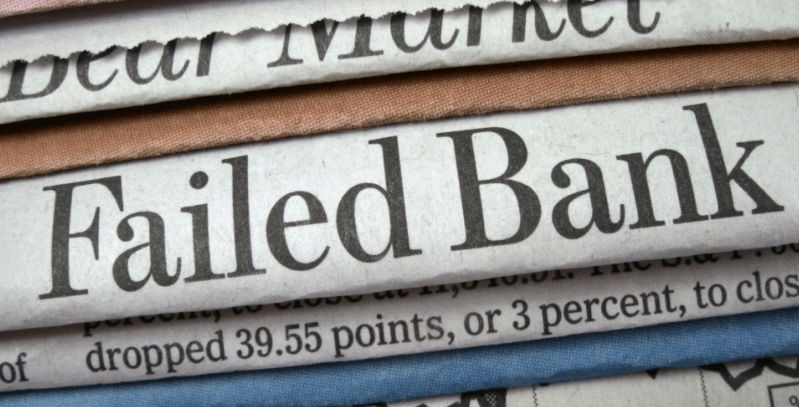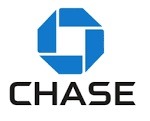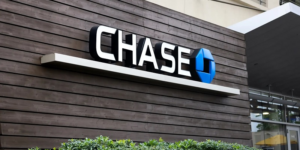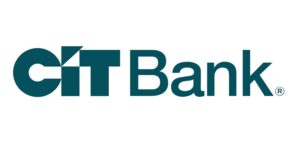 In the terrifying, yet extremely rare situation in which your bank fails, what happens to your money? No advance notice is ever given to the public before the institution is closed, because officials don’t want to create a run on the bank.
In the terrifying, yet extremely rare situation in which your bank fails, what happens to your money? No advance notice is ever given to the public before the institution is closed, because officials don’t want to create a run on the bank.
Due to the complexity of the relationship between banks and customers, dealing with all their checking accounts, savings accounts, money market accounts, etc. it seems like it’s be hard to recover from such a situation.
The regulator of a failed bank usually names the Federal Deposit Insurance Corp., or FDIC, as receiver. In addition to ensuring customers receive all of their insured deposits, the agency strives to make the closing as hassle-free as possible.
If you wish to be prepared for such an event, be sure to continue reading to learn more!
Three Common Fail Scenarios
- Another institution completely acquires the institution.
- The insured deposits are acquired but the uninsured deposits and the loans are left behind with the FDIC.
- There is no buyer and the FDIC runs the bank until it can find a buyer(s).
For the most part, a failed bank is closed on a Friday. Often, the institution reopens under the acquirer’s name — or under the FDIC — by Monday, although occasionally it happens sooner and the bank may open on a Saturday. In the case of the JP Morgan Chase takeover of Washington Mutual, WaMu’s branches never closed. There are times when the name change doesn’t take place right away, even though the acquiring institution has taken over.
What Services Are Affected?
Below is a list of the commonly affected services in the event of a failure:
- ATM/debit cards
- Automatic payments/escrows
- Automatic Direct Deposits/withdrawals
- CD accounts
- Checks
- Deposits
- Insured Deposits
- Uninsured Deposits
- Brokered Deposits
- Dormant Accounts
- IRAs
- Loans
- Online Services
- Overdraft line of credit
- Night deposit boxes
- Safe deposit boxes
- Tax information
- Trust accounts
Below we’ll go further into depth on how they are affected.
1. ATM/debit cards – You should have access to your funds though an ATM, but transactions during the time the bank is closed may not be posted to your account right away. It’s your responsibility to keep track of your transactions.
“ATMs are offline for processing,” is a quote that you can expect during the failure. They’re taken offline on the weekend. However, this does not mean you cannot use the ATM during the weekend. FDIC will take over, but are closed on the weekends, so any withdrawals/deposits made through ATMs may not show on your accounts until the following Monday.
2. Automatic payments/escrows – Generally there should be no disruption in service. However, you should check your account to be sure. If the payment wasn’t made, contact the loan officer at the acquiring bank or call the FDIC if it’s running the bank or it is handling the loans.
3. Automatic direct deposits/withdrawals – Automatic direct deposits and/or automatic withdrawals will be transferred automatically to your new bank.
4. CD Accounts – CDs will be insured separately until the earliest maturity date after the end of the six-month grace period. CDs that are maturing during the grace period may be renewed for the same term in the same dollar amounts unless you choose to close the CD.
5. Checks – Checks will be processed as usual. Check that haven’t cleared as of the date of the closing will be honored up to your available balance. You will be contacted by your new bank if any changes are made to the terms of your accounts.
6. Deposits – Most of the insured deposits are transferred in their entirety to the acquiring bank. A hold may be put on your account if you are the borrower or the guarantor of a delinquent loan. Any account pledged as collateral for a loan will be held. The FDIC will send you a letter explaining how to proceed.
Transferred accounts will be insured separately for at least six months after the merger. This is a grace period to give you time to restructure your accounts if you have an account at the acquiring bank and the combination means you exceed the insurance limit.
7. Insured Deposits – The acquiring bank should take the insured deposits. Interest-bearing deposits will continue to accrue interest at the same rate until the acquiring institution notifies you of a change in interest rate.
8. Uninsured Deposits – It’s never guaranteed that the acquiring institution will take on uninsured deposits; however, they sometimes do. The FDIC can only transfer all deposits if the premium covers the uninsured amounts. That has happened in about 25 percent of the failures over the past 15 years. So far in 2008, more than 50 percent of the acquiring institutions have taken the uninsured deposits. But don’t count on that trend to continue. Make sure your deposits are insured. Don’t wait until the bank is closed to find out you’re not covered.
9. Brokered Deposits – Brokered deposits are often CDs bought thorugh a broker. If the bank that the CD is listed on fails, theres a very low chance that the acquiring bank will take them on even if FDIC insurane covers them fully.
10. Dormant Accounts – If there has been no activity for 18 months, your account will be turned over to your state as unclaimed property. Visit the Missing Money Web site or contact your state treasurer’s office or your state’s office of unclaimed property for more information on these funds.
11. IRA’s – Retirement accounts transferred completely and are insured.
12. Loans – In the event that the acquiring bank does not take over your loan, the FDIC will hold on to it as they try to find a buyer. You’ll be notified if they succeed. Each loan will be reviewed independently to determine the best action for the loan. Lets say that you’re in the middle of a home improvement project and you need additional funding; there’s a good chance you may get it.
13. Online Services – Online banking and bill payments will not be available over the period that the bank is closed.
14. Overdraft Line of Credit – Your overdraft line will be transferred to a new bank.
15. Night Deposit Boxes – You can still drop money in them, but the money won’t be posted until Monday.
16. Safe Deposit Boxes – These boxes will not be available until the lobby reopens on Monday.
17. Tax Information – The acquiring bank will be responsible for sending you your 1099 tax information. The FDIC will do 1098 reporting.
18. Trust Accounts – Accounts will be transferred to the acquiring bank.
The FDIC makes every effort to publish on its Web site a Q&A specific to each bank closing. If your bank fails, check the FDIC Web site frequently for the latest information.
Bottom Line
If you’re ever worried in the event you may be part of a bank failure, be sure to read through this list to understand the affected services and what can happen to them. If there is ever a problem with any of the following services, be sure to contact your bank ASAP to fix the situation.
If you love finding posts like this, be sure to check out more on HMB! You can also check out other Bank Guides and our compiled list of the Best Credit Card Bonuses!
 | BMO Bank Checking: Open a new BMO Smart Advantage Checking Account and get a $350 cash bonus* when you have a total of at least $4,000 in qualifying direct deposits within the first 90 days. Learn More---BMO Checking Review *Conditions Apply. Accounts are subject to approval and available in the U.S. by BMO Bank N.A. Member FDIC. $4,000 in qualifying direct deposits within 90 days of account opening. |
 | Chase Total Checking®: Earn $300 bonus when you open a new Total Checking® account and make direct deposits totaling $500 or more within 90 days of coupon enrollment. Apply Now---Chase Total Checking Review |
 | Chase Private Client: Enjoy up to $3,000 bonus when you open a new Chase Private Client Checking account with qualifying activities. Get more from a personalized relationship when you open a new Chase Private Client Checking account with qualifying activities. Learn More---Chase Private Client Review |




Leave a Reply